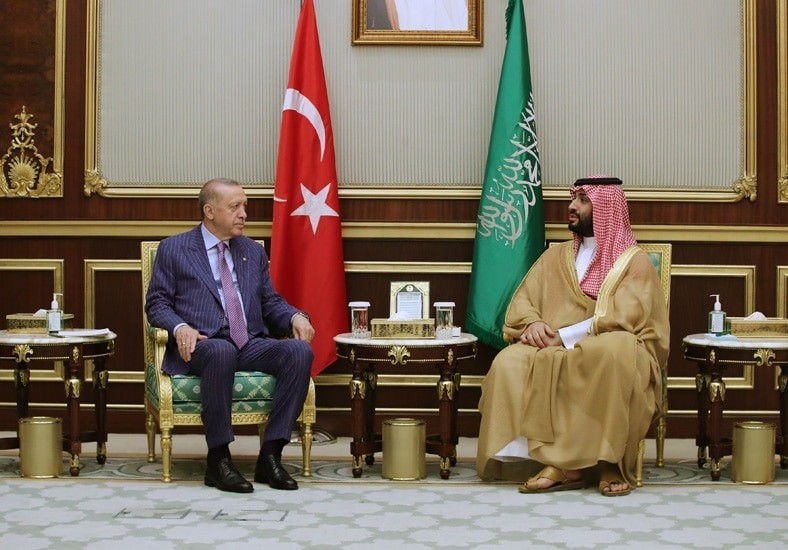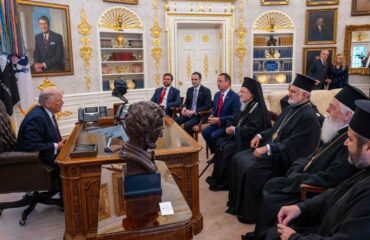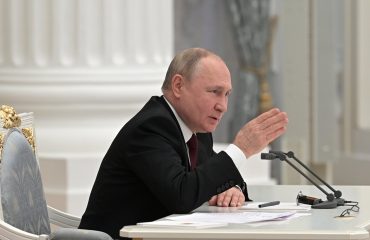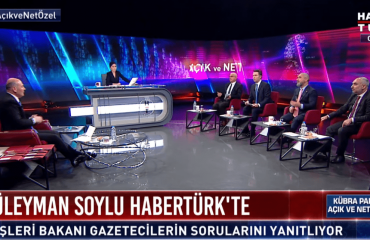

World is watching Turkey’s President Recep Tayyip Erdoğan’s head-spinning foreign policy maneuvers closely, both with appreciation and caution.
One day, Erdogan send United Nations Secretary-General Antonio Guterres off to Moscow as the Secretary General is scheduled to visit Russian President Vladimir Putin and Ukrainian President Volodymyr Zelensy. On the other day, we see Turkey’s president in Riyadh, hugging Saudi Crown Prince Mohammed bin Salman, whom he has been accusing of the murder of Jamal Khashoggi recently. And then, it is announced that while the USA and Russia are threatening each other with the Third World War due to the Ukraine Crisis, the prisoner exchange between the two countries is done quietly in Ankara. One day, Turkey closes its airspace to Russian planes carrying soldiers and weapons to Syria, and the next day, Defense Industry President İsmail Demir announces that they are in talks to purchase a second batch of S-400 from Russia.
Do you think Erdogan is a politician too inexperienced to calculate that this move could complicate the US administration’s recommendation to Congress on the sale of the F-16 as a result of Turkey’s singular role in the Ukraine Crisis? Or, do you think Erdogan cannot predict that the sentencing of Osman Kavala to life imprisonment at his own persistence will once again make the warm winds blowing in the US Congress, the Council of Europe and the European Union due to the Ukraine Crisis to get violent?
How to read the maneuvers
Don’t you think the President doesn’t know that international community observes that while Turkey’s foreign policy maneuvers from hawk to pigeon continue in the last 7-8 months, the domestic politics has turned into hawk to an eagle.
Let’s ask the questions in a different way to decode the maneuvers more accurately.
Do you think it is easy in terms of realpolitik for the Council of Europe to start the process of suspension of Turkey, which is already in infringement process over the sentencing of Osman Kavala? Or, do you think that Erdoğan cares about that consequence? This also applies to relations with the EU. While Turkey is going to the elections amid the peak of economic crisis, isn’t it obvious how the exclusion of Turkey from Europe will work for Erdogan in domestic politics and how he can turn the economic crisis into a propaganda that is based on “protecting the leader by destroying the Western foreign powers”?
Isn’t it clear how this will put NATO in a difficult position, just as a new Cold War with Russia has begun, if the United States rejects the sale of the F-16 after excluding Turkey from the F-35 program due to the purchase of the S-400? Speaking of NATO, you must have seen the maneuvers of Sweden and Finland, which have embargoed sensitive materials that can be used in military technology due to Turkey’s operations against the PKK, now need to get Turkey’s approval to become a NATO member out of fear of Russia.
Testing the limits
It is clear that the Covid-19 epidemic and then the Ukraine Crisis will or even begin to change the global equations.
Like many regional powers, Turkey wants to increase its influence in this new equation.
The foreign policy maneuvers that Erdogan initiated 7-8 months ago, of course, are also related to the need for external resources for Turkey’s economy that was evidently dragged into crisis at that time in September-October 2021. But it is essentially an effort to occupy a better place at the new table.
However, Erdogan does not want to lose power at home while trying to hold a new place for Turkey abroad. That’s why it’s moderate and balanced moves on the outside is even hardening inside. The Osman Kavala case is not just about Kavala in person; it has a broader political meaning. The fact that the Disinformation Law, which is expected to come to the agenda of the Grand National Assembly of Turkey, contains the danger of banning all kinds of criticism or corruption allegations as slander and disinformation. Just before the elections, it aims to intimidate all kinds of opposition voices.
Erdogan gives the message to his interlocutors from the Western world to the Arab world saying that “if you need me in international politics, you will accept what I do inside”. He’s testing how far he can push the boundaries.
The whole issue is whether this test will be translated in voter support, whether it will turn into votes at the ballot box. Will the opposition, which forms a front against Erdogan, be able to revise and update its policies, being aware of this fact? This is an important question that connects foreign policy to economy and domestic politics.


